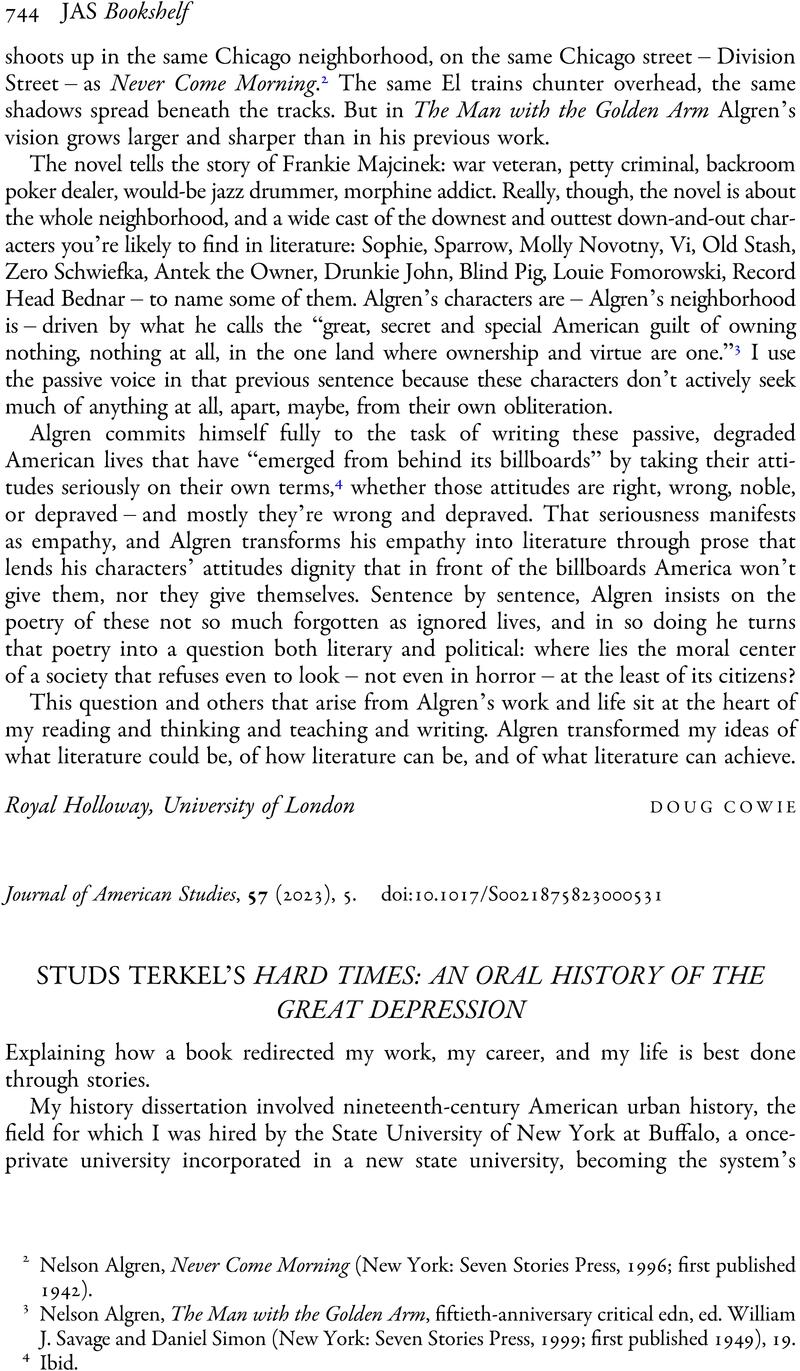No CrossRef data available.
Article contents
STUDS TERKEL'S HARD TIMES: AN ORAL HISTORY OF THE GREAT DEPRESSION
Published online by Cambridge University Press: 08 February 2024
Abstract

- Type
- JAS Bookshelf
- Information
- Copyright
- Copyright © The Author(s), 2024. Published by Cambridge University Press in association with the British Association for American Studies
References
1 Terkel, Studs, Hard Times: An Oral History of the Great Depression (New York: Pantheon, 1970)Google Scholar.
2 Frisch, Michael, “Oral History and Hard Times: A Review Essay,” Red Buffalo: A Journal of American Studies, 1, 2 (1972), 217–31Google Scholar. The essay was republished in Oral History Reviews in 1979, and then, more conveniently, as the first chapter in Frisch, Michael, A Shared Authority: Essays on the Craft and Meaning of Oral and Public History (Albany: SUNY Press, 1990), 5–13Google Scholar.
3 Grele, Ronald J., Envelopes of Sound: Six Practitioners Discuss the Method, Theory, and Practice of Oral History and Oral Testimony (Chicago: Precedent, 1975)Google Scholar. Second edition: Grele, Ronald J., Envelopes of Sound: The Art of Oral History (New York: Praeger, 1991)Google Scholar.
4 Frisch, Michael, “Studs Terkel, Historian,” History Workshop Journal, 69, 1 (2010), 189–98CrossRefGoogle Scholar.



